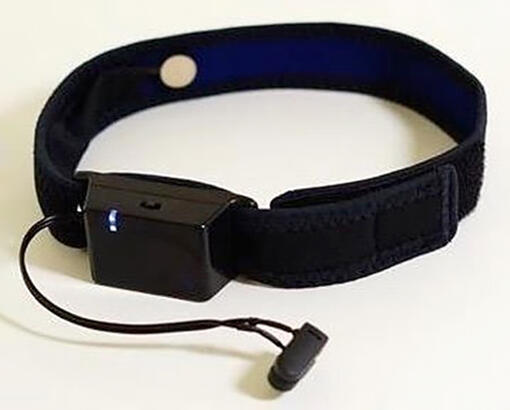A research group consisting of Professor Yasue Mitsukura of the Faculty of Science and Technology, Keio University, Project Lecturer Brian Sumali of Keio University Global Research Institute (KGRI) and their colleagues has succeeded in demonstrating the possibility of mild cognitive impairment (MCI) with just a simple electroencephalography (EEG).

Provided by Keio University
There are now over 6 million people in Japan with dementia, and it is said that dementia occurs in one in six people over the age of 65. It is predicted that this will rise to one in four people by 2040, making early discovery desirable, but there is still no established method for this.
The research group used an EEG device that can easily measure brainwaves anywhere and at any time to measure the brainwaves of 120 experimental subjects who were split into three groups: healthy people, patients with MCI and people with dementia. The group was able to clarify the characteristics of the brainwave frequencies measured in each group. With this, the researchers shed some light on the characteristics of the brainwaves of the three groups.
If researchers can make use of these characteristics, it will be possible to determine whether someone has dementia or MCI just by obtaining their brainwaves. The type of EEG device used is worn around the head without burdening the subject, and takes around 15 seconds to fit, 15 seconds to calibrate (generalize an individual's biased values) before it starts taking measurements, and measures brainwaves in a total of around 30 seconds. Even if a subject moves, the device can remove the noise in an instant and take stable measurements, meaning it is easy to use in any location. It is hoped that routine use will enable people to easily determine the possibility of MCI or dementia in the home without going to a hospital.
Professor Mitsukura commented, 'Obtaining data in field experiments (on-site) and cleanly removing noise from brainwaves that were accompanied by a lot of noise was difficult. I want to create a world where people in the MCI stage can easily detect when "something is off" without missing it using a device at home and contribute to early detection and treatment of dementia.
Journal Information
Publication: BMC Psychiatry
Title: Frontotemporal EEG as potential biomarker for early MCI: a case-control study
DOI: 10.1186/s12888-022-03932-0
This article has been translated by JST with permission from The Science News Ltd.(https://sci-news.co.jp/). Unauthorized reproduction of the article and photographs is prohibited.




